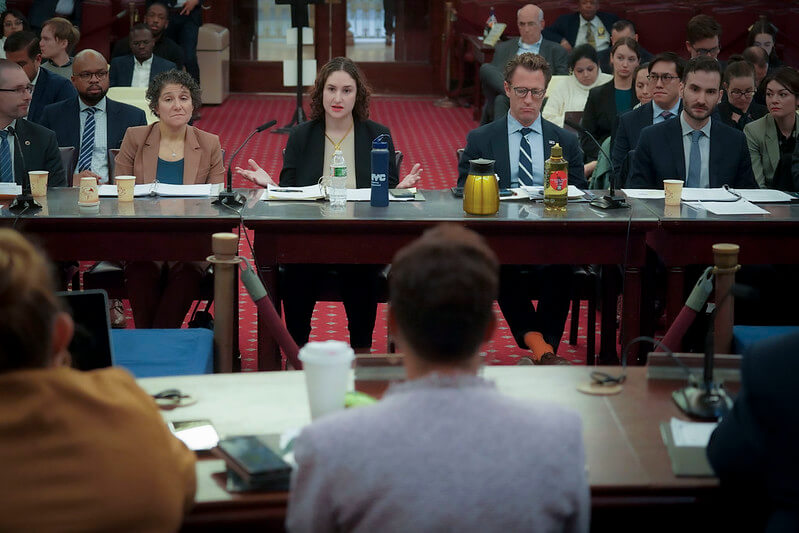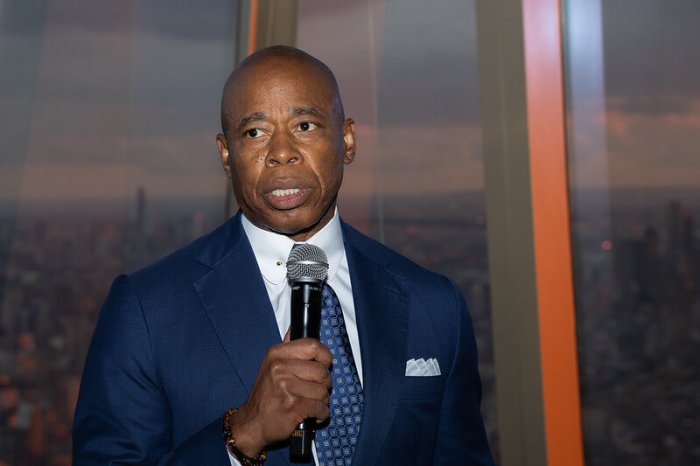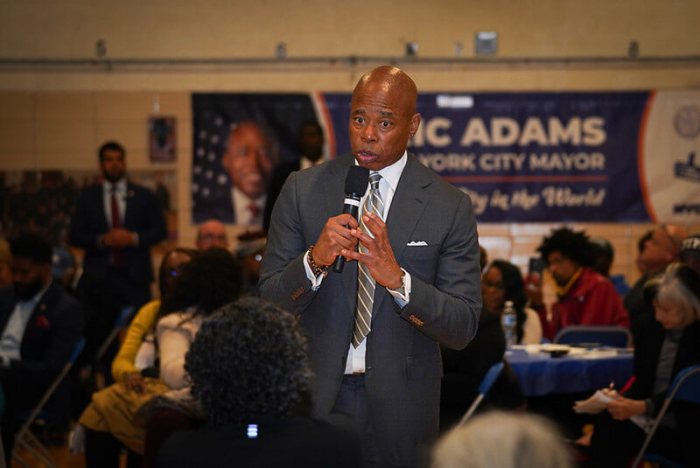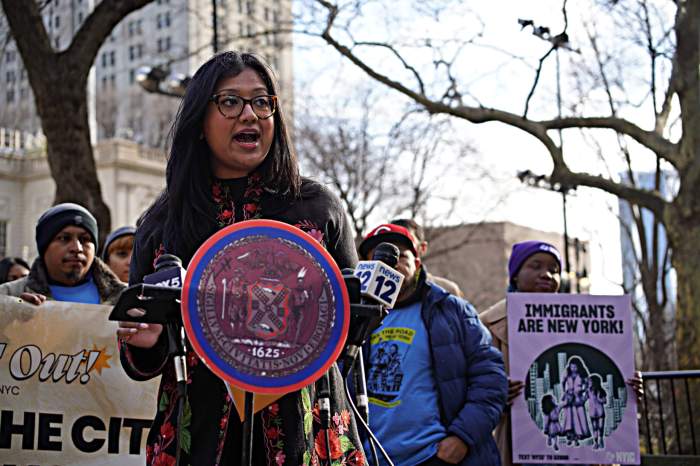Mayor Eric Adams is planning to expand a 30-day shelter stay cap for single adult migrants to those living in facilities run by the Department of Homeless Services (DHS), a top administration official said Monday.
Department of Social Services (DSS) Commissioner Molly Waso Park said the administration will now be applying the shelter stay limit, which is currently in place for single adults living in shelters operated by other city agencies, to facilities run by her department, which oversees DHS. The other agencies running migrant shelters include city Emergency Management (NYSEM), Health + Hospitals (H+H) and the Department of Housing Preservation and Development (HPD).
The limits on shelter stays were originally introduced back in July as a means of freeing up beds to make room for additional newcomers, with roughly 4,000 arriving in the city each week — according to the administration’s latest estimate. The policy stipulates migrants must find “alternative housing” outside the city system within the given time limit or reapply for a bed at the migrant intake center at the Roosevelt Hotel in Midtown Manhattan.
The rule is paired with “intensive” case management that is aimed at helping new arrivals find a place to land within the allotted time period.
Park made the revelation during an Oct. 23 City Council hearing focussed on examining costs incurred by the influx of over 130,000 to the Big Apple since April 2022.
“We anticipate that in the next several weeks we will be rolling out the 30 day notice for adults in the DHS system with the understanding that we will work with individuals who still need assistance at the end of 30 days,” Park said.
Park added that single adults make up a “very small fraction” — roughly 2,000 — of migrants being housed in DHS shelters, as the city has moved them out of Homeless Services facilities to those operated by other agencies.
In order to implement the time limit at DHS-run shelters, the city must get a waiver from the state Office of Temporary and Disability Assistance (OTDA). Park said the administration has been in “very close collaboration” with the state agency about its intention to roll out notices in DHS shelters.
“There’s a relatively small number of single asylum seekers remaining within the DHS system and [the state is] certainly aware that we intend to have a roll out notices there,” Park said.
However, Park made it clear her agency is not currently looking to introduce a similar 60-day limit for families with children, which was recently implemented for sites run by other city agencies, to shelters within the DHS system.
“We are not implementing at this time the families with children time limit,” Park said.
While families with children make up about the majority of migrants in the city’s care, 47,864 out of 63,000, they are mostly housed in the DHS system, according to Park. In effect, that means the recently implemented 60-day shelter limit for families is far narrower than initially thought.
The shelter limits for single adults and families have both been slammed by pols and advocates who argue they are unnecessary and disruptive to migrants who endured long and arduous journeys to get here. Deputy Council Speaker Diana Ayala, a frequent critic of the administration’s migrant crisis management, reiterated her dismay with the policy for families with children during the Monday hearing.
“I do not agree with applying the 60-day rule to families and children, I just think it’s really catastrophic that we wouldn’t even think about doing that,” Ayala said.
But the administration argues the notices have been “successful” thus far in pushing migrants to find more permanent living situations where they do not have to depend on the city.
Molly Schaeffer, interim director of the city’s Office of Asylum Seeker Operations, said during the hearing that success can be seen in less than half of the 13,500 single adult migrants given 60-day notices returning to the Roosevelt Hotel to get a new shelter placement.
“We’re seeing that initially it’s working,” Schaeffer said. “Many asylum seekers are moving in with families and friends or finding other places to stay instead of returning to the arrival center … It really gives our teams a time limit to help those individuals.”
































